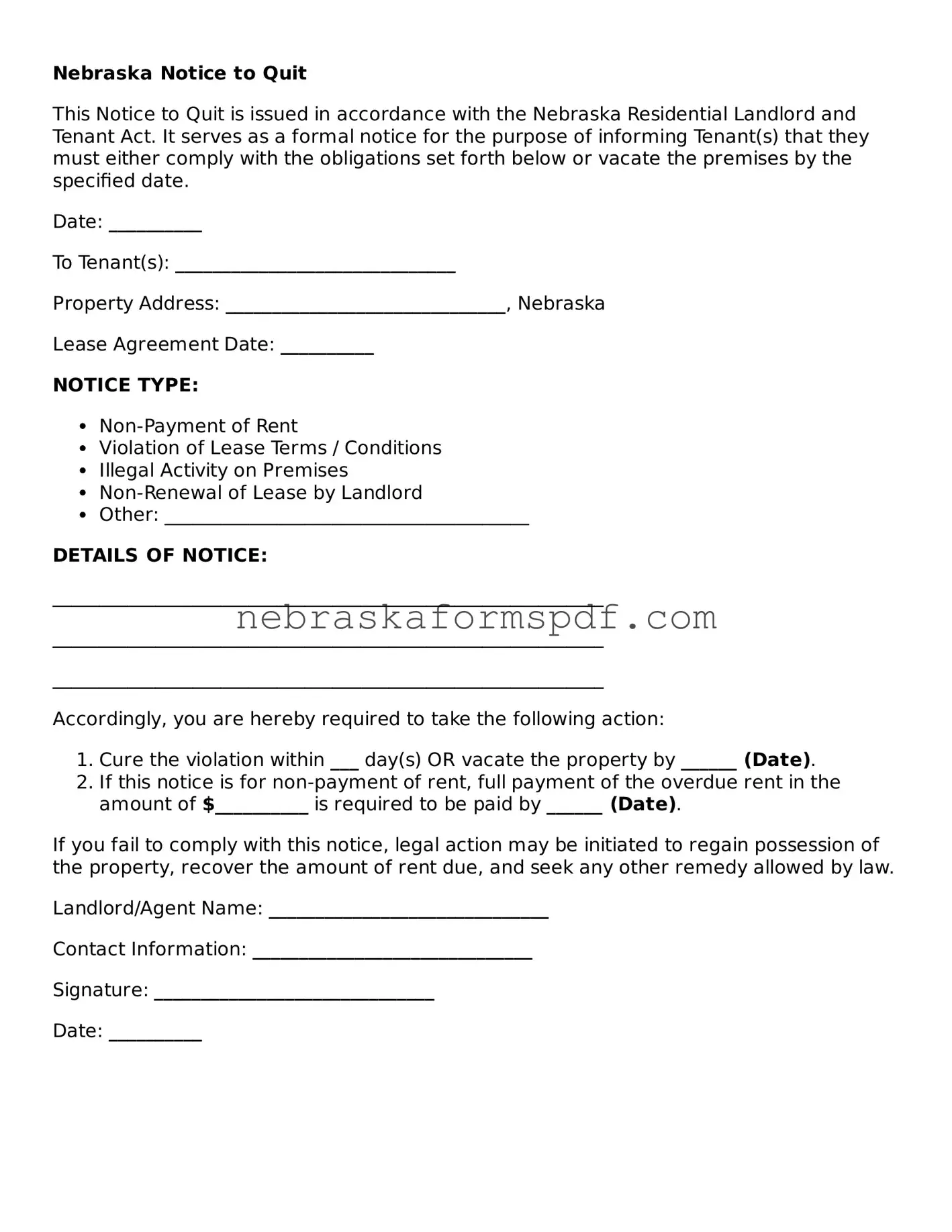Fillable Nebraska Notice to Quit Template
The Nebraska Notice to Quit form is a legal document that landlords use to inform tenants they must either correct a violation of the lease or vacate the property. This form is the first step in the eviction process, providing tenants with a clear deadline to remedy the issue or move out. It's a crucial tool for property management, ensuring both parties understand their rights and obligations.
Open Editor Here

Fillable Nebraska Notice to Quit Template
Open Editor Here

Open Editor Here
or
Click for PDF Form
Don’t exit with an incomplete form
Finish Notice to Quit online using a quick, guided process.